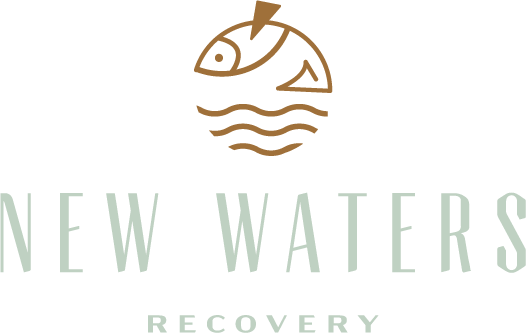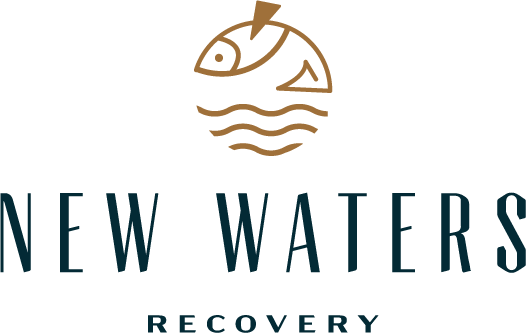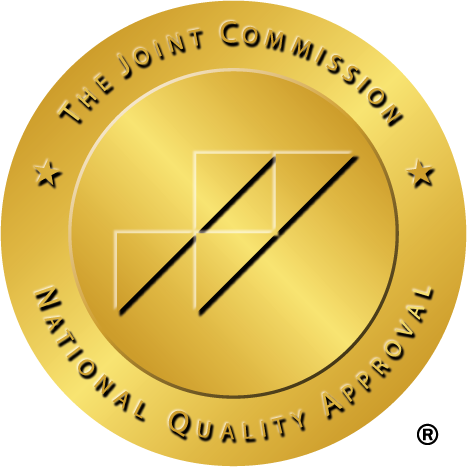Table of Contents
Depression is one of the most common mental health disorders in the United States. In 2020, approximately 8.4% of all adults in the United States had at least one depressive episode.
That’s a huge number of people when you consider that that’s just the data from one year and that people who have had one depressive episode might be more likely to have another, and some of those people will go on to develop a major depressive disorder, which is a more persistent form of depression.
This is an issue that needs to be taken seriously.
Unfortunately, one of the challenges in adequately recognizing and treating depression in our society is that having depression and other mental health disorders is still heavily stigmatized, which can lead people dealing with the disorder to hide their symptoms, deny having it, and even to be in denial about their own situation.
The pressure to keep their condition hidden can make the symptoms of depression worse and harder to control, which can make people desperate for potential solutions, more likely to take risks, and more likely to act out as a release for their hidden emotions.
That’s important because it’s one of the reasons that people with depression, whether they’re experiencing a depressive episode or have major depressive disorder or another mental health disorder, are at greater risk of addiction.
So, let’s peel back the veil over depression and talk realistically about hidden depression, the signs that you or a loved one are dealing with hidden depression, and how hidden depression can turn into substance use disorders and addiction.
What Are Some Signs Of Hidden Depression?
Everyone who deals with depression deals with their symptoms differently. That’s partially because everyone has different symptoms and different coping mechanisms, which leads to different outcomes, but also because of the need to keep depression hidden.
With that in mind, let’s talk about some of the signs of depression, in your friends and family, but also internal signs that can tell you that you might be dealing with depression.
How To Recognize Hidden Depression In Your Loved Ones
Many people with hidden depression actually mask their symptoms so well that the people around them don’t realize that they are dealing with depression or any mental health disorder.
There’s a reason so many people tell you to check on your strong friends, your happy friends, your funny friends.
Those personality traits might be hiding an underlying depression.
Of course, not everyone who seems the opposite of depressed is or is going to be depressed. It can be difficult to find out how people are feeling when they seem happy all the time.
However, some subtle signs might tell you a happy seeming friend or loved one is dealing with depression.
Forced Happiness: No one feels happy all the time, so if someone you’re close to seems like they’re always happy or always in a good mood, that might be a sign that it’s time to check on them. It could be that they’re just genuinely a very happy person, or it could be that they are masking inner depression.
These masks often slip in subtle ways. For instance, someone who only smiles when they are interacting with people directly, or who often seems out of it or spacey might be dealing with hidden depression and then masking during interactions.
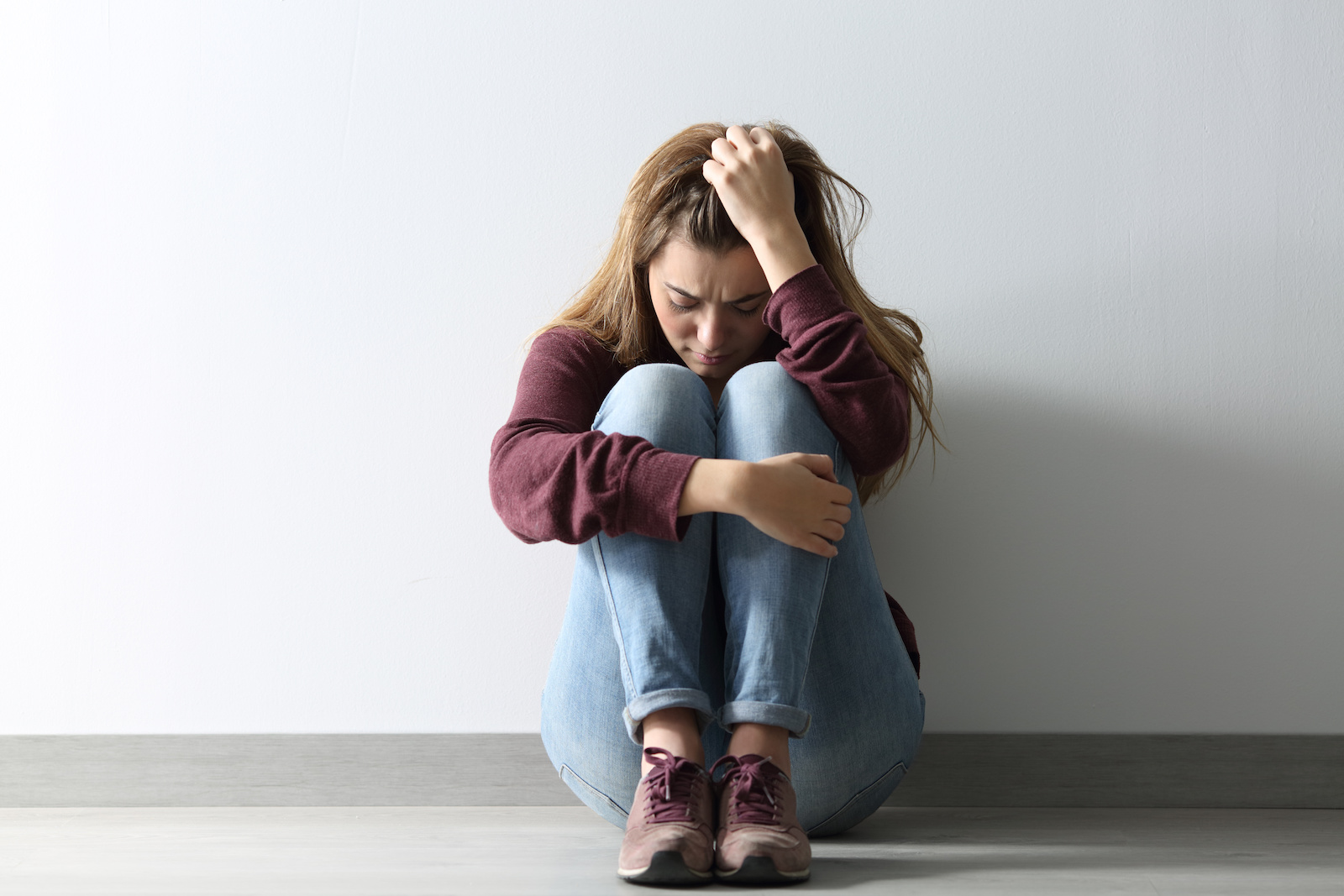
Little Interest In Previously Enjoyed Activities: If someone in your life suddenly isn’t interested in their projects and hobbies, or no longer wants to talk about their favorite subjects or visit their favorite places, that should be a big red flag for hidden depression.
Even if their mood seems fine most of the time, this lack of interest can be an indicator of stress, needing extra support, or starting to deal with depressed feelings.
Sudden Weight Gain Or Loss: Even if your loved one otherwise seems fine, a sudden or rapid change in their weight is a good reason to check-in. They could be dealing with an undisclosed health issue, or they might be dealing with the food-related side effects of depression or even antidepressant medications.
That said, it’s also normal for people not to want to talk about their weight, so if you choose to address this one it’s best to be delicate and to accept their answer if they say they don’t want to talk about this with you.
You may also want to talk to friends just because you have a sense that they might need it, even if you can’t pinpoint exactly what makes you feel that way. They may be grateful to have a chance to let out some of their feelings and express what they’re dealing with to someone else.
It’s also normal for someone dealing with hidden depression to ask you to keep it a secret, but if you’re worried about their safety it might be necessary to tell someone who can help keep them safe. Healthcare professionals, parents, and even their partners may be a good place to start to help create a support network for a friend dealing with hidden depression.
How To Recognize Hidden Depression In Yourself
One of the biggest challenges with depression is that it can be easy to miss, even in yourself, and even if your symptoms are severe.
It’s easier than you’d think to convince yourself that depression symptoms are normal or that everyone deals with the symptoms of depression.
It’s important to remember both that depression isn’t something you have to live with forever, it’s treatable, and it isn’t something you need to keep hidden. Your loved ones will understand, and it won’t hurt anyone to know that you’re dealing with depression, but it might hurt you to keep your depression hidden.
Here are some common signs of depression in yourself:
- Feeling sad or low most of the time, especially if your feelings last for two weeks or longer with few breaks.
- You aren’t interested in doing the things you used to enjoy.
- It’s harder to motivate yourself to do things, even things you’ve been looking forward to.
- You find yourself sleeping too much, or struggling to get to sleep.
- When people ask you how you are you feel like you need to lie or say that you’re feeling better than you do.
- You feel yourself faking smiles and happy expressions, even with people you would normally trust with your feelings.
- Your appetite is bigger than normal, or less than normal.
- You feel like the future is hopeless.
- You feel out of control in your life.
There are also two additional big signs of depression and hidden depression that we haven’t mentioned in that list.
That’s because these symptoms need more than a mention.
Two of the most concerning and most severe symptoms of hidden depression in yourself or others are:
- Desire or intent to hurt yourself.
- Desire or intent to kill yourself.
These symptoms, called self-harm ideation, self-harm intent, suicidal ideation, and suicidal intent, are some of the biggest and most dangerous symptoms of depression.
To the surprise of many people, these symptoms may be present even in people who seem perfectly happy and don’t seem to have many other symptoms of depression.
If you are dealing with those symptoms, or know someone in your life who is dealing with those symptoms, remember that you aren’t alone. You can get help, and things can get better.
If you’re in immediate danger, call 911 or the national crisis line at 988.
How Hidden Depression May Turn Into An Addiction To Drugs Or Alcohol
One of the risks of hidden depression, especially severe depression, is that your symptoms can make you look for anything that promises some relief from those feelings.
Often, that includes illicit drugs and alcohol that either help you feel better temporarily, or at least numb the negative feelings for a while.
The problem is that long-term, most drugs, and alcohol aren’t meant for dealing with depression, and they can actually make your symptoms significantly worse.
That puts people with depression at greater risk for addiction not only because they are more likely to try drugs and alcohol to deal with their symptoms, but also because using those substances starts a negative feedback loop. The drugs make them feel worse, so they feel a stronger urge to use the drugs to deal with those feelings, which then makes them feel even worse, and on and on.
Eventually, people dealing with depression and addiction might not even get the relief they are looking for from the drugs or alcohol but will find that they still can’t stop even though they don’t really feel good when they are taking the drugs.
That’s a classic sign of advanced addiction and a serious sign that you need help overcoming addiction and dealing with your mental health.
Remember, addiction is a health condition, and depression isn’t shameful and doesn’t need to be hidden.
If you’re dealing with hidden depression and addiction, you can (and should) get help.
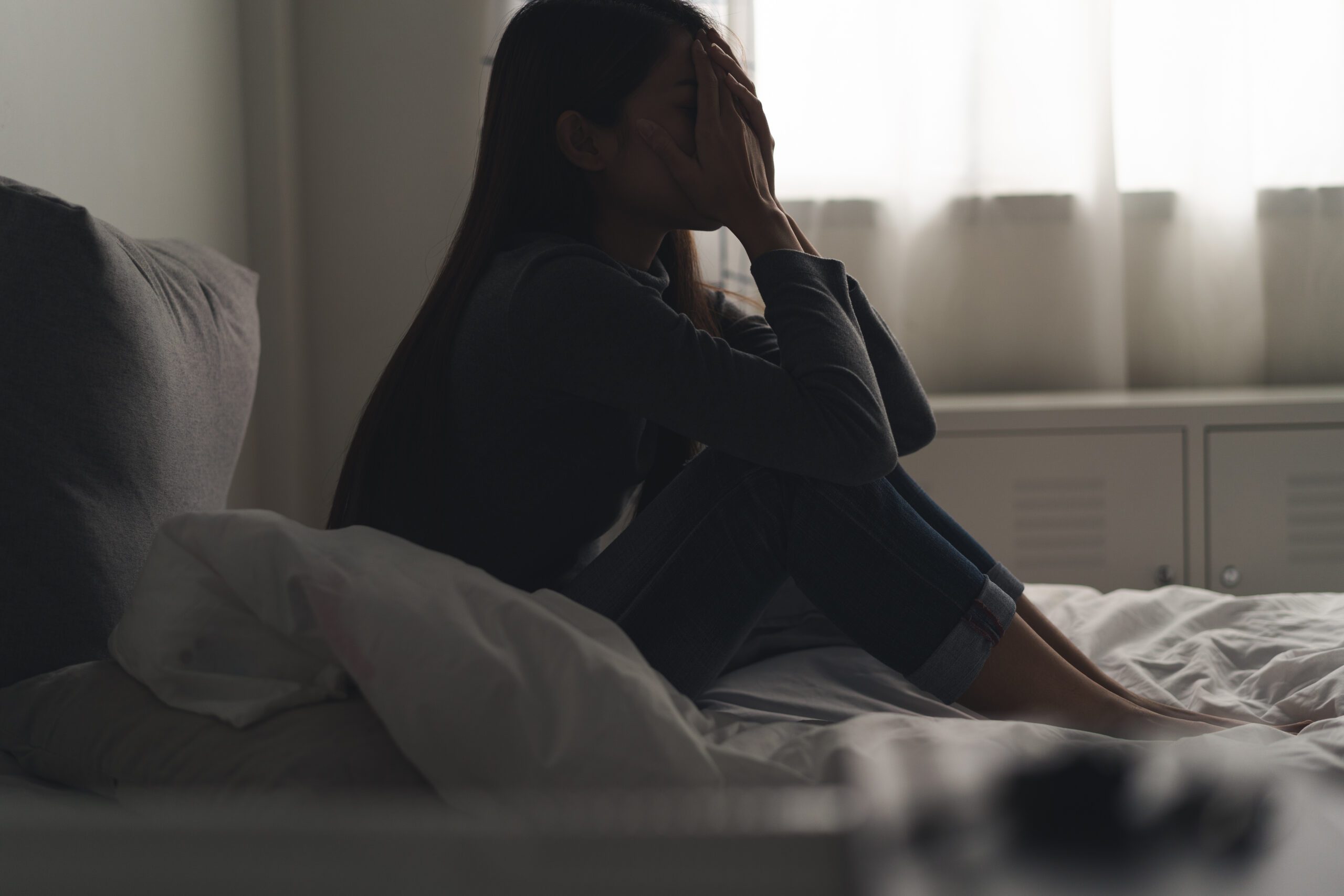
Why You Should Never Struggle With Hidden Depression Alone: How To Get The Help You Need
Depression is hard for people to deal with on their own, and you shouldn’t have to try and manage the symptoms of a mental disorder without help and support.
When you add addiction into the mix things get even harder.
It’s important to remember that you don’t need to deal with these problems alone. There are options for help and support out there.
If you’re dealing with depression, talk to your doctor about options. They might recommend medication, speaking with a therapist, local support groups, all three, or even a temporary stay in a mental health hospital to help you get your symptoms under control.
Take some time to think about your options, and choose the treatment that seems most appealing/most likely to succeed in consultation with your doctor.
If you’re dealing with both addiction and depression, you can start with the same option. Talk to your doctor about your concerns, and treatment options, and see what they recommend.
But, if you’re already dealing with both an addiction and a mental health disorder, your best option might be getting treatment at a specialized treatment center.
Remember that there is no shame in asking for help or admitting that you have a problem. It’s okay to need extra support, and depression is a big problem to have. It’s no wonder you reached out to other things, including substances, to try and manage your symptoms.
But you don’t need to do it alone.
At New Waters Recovery, our drug rehab center in North Carolina is here to offer you support. We can help. Contact us to learn more about our programs, how we help people with depression and addiction problems, and more about our intake process, and when you can get started.
There is hope for a better future, and you will get there.
Sources:
New Waters Recovery has strict sourcing requirements, relying on sources from scholarly research and peer-reviewed studies, as well as those from medical associations. We keep away from using third-party references as our sources. In order to learn more about how we choose our sources and our sourcing guidelines, please reference our Editorial Policy.
NIDA. Part 1: The Connection Between Substance Use Disorders and Mental Illness. National Institute on Drug Abuse website. April 13, 2021. Accessed August 23, 2022.https://nida.nih.gov/publications/research-reports/common-comorbidities-substance-use-disorders/part-1-connection-between-substance-use-disorders-mental-illness.
NIMH. Major Depression. National Institute For Mental Health. Published January 2022. Accessed August 23, 2022. https://www.nimh.nih.gov/health/statistics/major-depression.
Otte, C., Gold, S., Penninx, B. et al. Major depressive disorder. Nat Rev Dis Primers 2, 16065 (2016). https://www.nature.com/articles/nrdp201665
New Waters Recovery Editorial GUIDELINES
At New Waters Recovery, we take your health and wellness seriously. We have a thorough process in place to ensure the integrity of information that is displayed on our website. All content published to our site undergoes a rigorous medical review by a doctorate level clinician to ensure medical accuracy. Read More About Our Process
